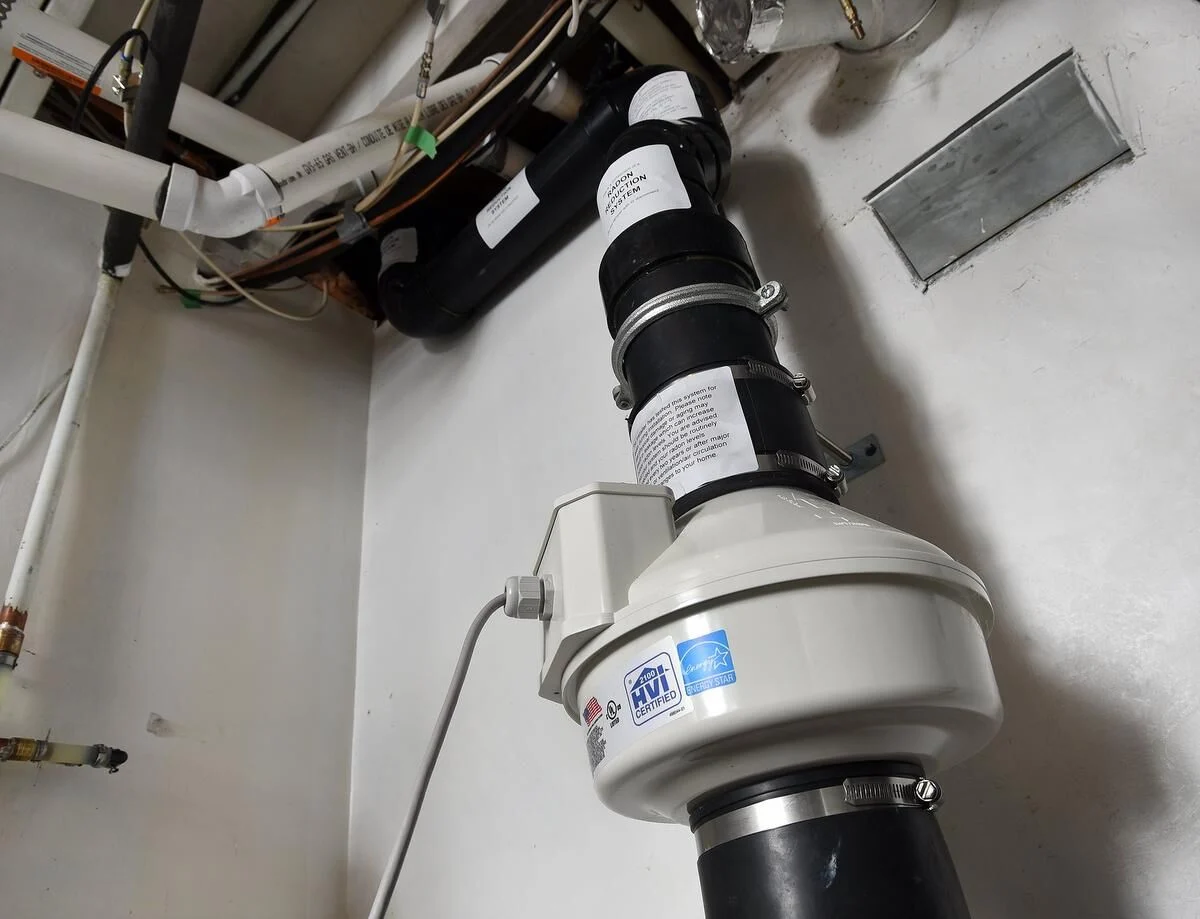
While radon risks remain rarely discussed in most of Canada, some communities and public officials are taking unique steps to generate greater awareness and action.
Ontario
The Ontario Building Code requires radon mitigation in only three small communities: the Town of Elliot Lake, the Township of Faraday and the Geographic Township of Hyman.
A lack of comprehensive testing and disclosure across the province means most Ontarians — and municipalities — don’t know whether they have a radon problem. And there remains no widespread protective measures to protect from radon risks.
In Guelph, however, city officials have taken matters into their own hands. The city has been running a program since 2015 requiring residents who are applying for a building permit to proactively address radon risks with steps including mandatory rough-in and testing, sealing the foundation or installing a full radon mitigation system. Rough-ins make it easier to install mitigation systems at a later date.
More
Read the investigation: The invisible threat inside your home: Dangerous levels of radon gas are being found in more houses across Canada than ever before
Early on, there were concerns from home builders and owners about the extra costs, but now it’s a routine part of construction.
“There’s no surprises anymore. It’s just part of building a house,” says Nicholas Rosenberg, a program manager at the City of Guelph. “I don’t hear any complaints about it anymore.”
The cost of installing radon protection during home construction ranges from $2,500 to $4,000.
Other municipalities are taking note: This program has been replicated in Kingston in 2019 and Hamilton in 2020.
British Columbia
British Columbia requires new builds include a passive mitigation system –– a vent that acts as a chimney funnelling air from below the foundation out of the house –– in areas of the province identified as having elevated radon levels. This requirement goes beyond what is necessary under the national building code.
Houses in 41 cities and towns –– excluding the Vancouver and Victoria areas –– are required to have the passive system.
It has proven effective in keeping radon levels low, says Sam Ellison, senior building inspector for the City of Nelson.
“I’m not even aware of a house built in the last six or seven years where they’ve had to do anything beside the base [passive radon system].”
Alan Whitehead founded a radon testing and mitigation company in Maple Ridge, B.C., after his wife was diagnosed with radon-induced lung cancer. He said Canada needs better national oversight to protect Canadians from radon.
New Brunswick
Recent radon testing in New Brunswick public housing units underscores how prevalent the problem could be.
Roughly one-third of the units that were tested exceeded Health Canada’s guideline, according to a damning report by the province’s auditor general released earlier this year.
Despite the serious health risks, government officials didn’t start notifying residents until June 2020 –– at least eight months after they knew about the radon levels, the report found.
Of the 284 units that were found to have high levels of radon, only 94 have been remediated. It’s expected to cost $1.5 million to remediate the remaining 190 units.
“Radon contamination is a serious concern for the entire population of the province,” said Robert Duguay, director of communications for the Department of Social Development, in an emailed statement.
More than 3,500 units have not been tested for radon but the auditor general estimates that nearly 1,200 units could be at risk for elevated levels of radon gas. At the current testing rate of 160 per year, the report estimates it could take 23 years to test the remaining units.
Duguay said the department has doubled testing capacity and plans to test all the province’s public housing units within the next eight years. He added there are a limited number of contractors in New Brunswick who are certified to do radon mitigation.
If you’re interested in testing your house for radon, you can visit Evict Radon or Take Action on Radon for more information.
This article was also published in the Toronto Star.